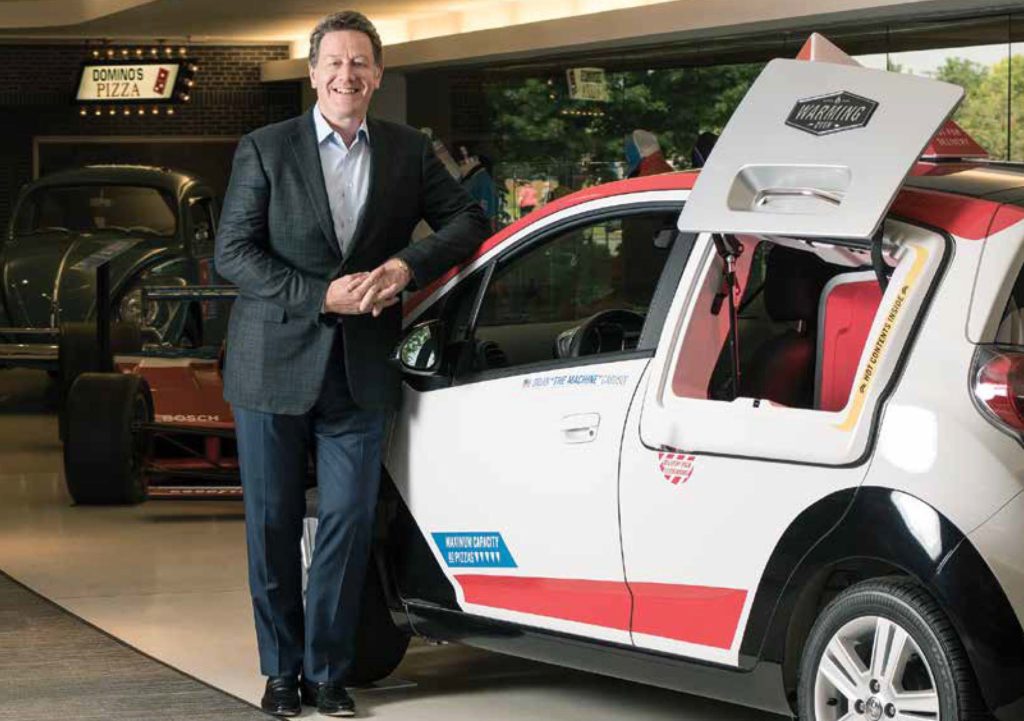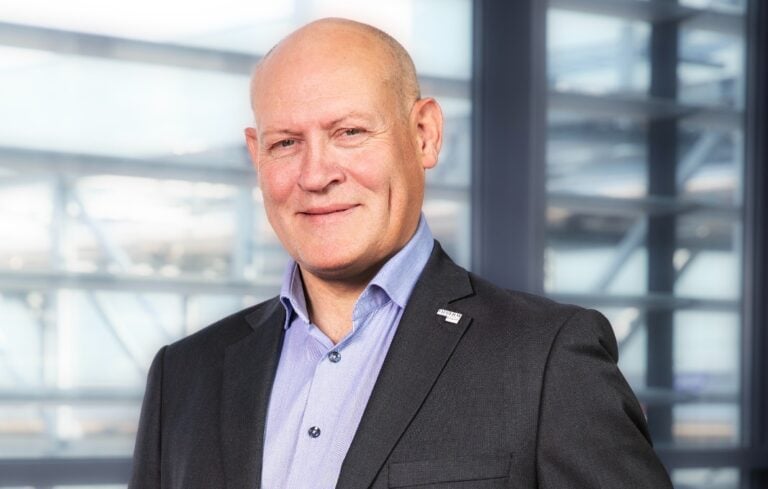
When Patrick Doyle walks out the doors of Domino’s headquarters in Ann Arbor, Michigan, on Friday, on his last day as CEO, he’ll be doing so in an enviable position for a corporate chief: His legacy, business reputation, youth and health all will be intact.
But Doyle says he won’t have a clue about what he’s going to do next. The only thing he’ll know for sure is that he’ll have completed one of the most remarkable American business-success stories of the last decade by elevating Domino’s into the world’s No. 1 pizza maker from a position where Doyle admitted in a TV ad that people didn’t like its products.
While he understandably has had lots of offers and suggestions about what his next step might be, the 55-year-old Doyle says, “I don’t have the slightest idea of what I’m going to do. I wanted to finish strong at Domino’s and I didn’t want to distract my attention away from making the transition as smooth as it might be.
“We got our franchisees and Wall Street comfortable about the transition” to incoming CEO Richard Allison, currently Domino’s international chief. “The last thing I wanted to do was spend a lot of my time thinking about what was next. My wife and I want to take a little bit of time and put our feet up … and think through what we want our next adventure to be.”
Expect Doyle to spend more time with his wife and two adult daughters, and working on a golf game about which he’s suitably self-deprecating. But don’t necessarily expect him to return phone calls about serving on a board, helping another non-profit–or running another company. At least not for a while.
When he ascended from U.S. chief to the CEO’s job in 2010, Doyle’s goal was for Domino’s to overtake Pizza Hut on top of the pizza business. While overhauling product quality and marketing, buttressing relationships with Domino’s vital franchisees, and establishing an international expansion that is ongoing, he focused quickly on the need for the chain to leverage digital technology to improve a delivery experience where the brand originally made its mark.
“The best thing for the business is that when you’ve got someone to the point where they’re ready to go as the next CEO, and they’ve got their team in place ready to do well, then my job is to get out of the way and let that happen.”
So under Doyle’s leadership, Domino’s became a haven for tech-savvy millennials from the nearby University of Michigan and many other points. They leveraged digital smarts to make ordering, tracking and taking delivery of a Domino’s pizza arguably one of the world’s easiest commercial transactions and help vault their employer above a struggling Pizza Hut. Now about 500 people, roughly a majority of Domino’s headquarters workforce, are techies of some sort.
Successful succession has been another important part of Doyle’s legacy, the way he sees it. “Having a fabulous team is ultimately what drove the timing” of his departure from the company, he says. “After eight and a half years as CEO, my job is to get out of the way and let the next stage of growth occur.”
Why not oversee his accomplishments at Domino’s for a while longer? “My first conversation with my board about succession planning was probably six months into the [CEO] job,” he recalls. “And that’s the way it’s supposed to work. That can’t be driven by the person in the role. The best thing for the business is that when you’ve got someone to the point where they’re ready to go as the next CEO, and they’ve got their team in place ready to do well, then my job is to get out of the way and let that happen.”
Besides improving the Domino’s experience all around for its customers, and helping generate far better returns for franchisees who were hurting during the Great Recession, Doyle counts Domino’s becoming the top pizza chain as the greatest accomplishment of his tenure. And that isn’t just because it fulfilled some ego-driven goal.
“It’s a point of pride, but it’s also important because scale matters,” Doyle explains. “It drives efficiencies in distribution and the ability to buy advertising. And it gives you the ability to invest in things like technology that clearly have been a big part of what we’ve been doing.
“It also matters in bringing talent into the organization. We’ve accomplished what we have, and we’re a large player, and we can bring in new talent and recruit franchisees around where we’re going. That’s very important.”







